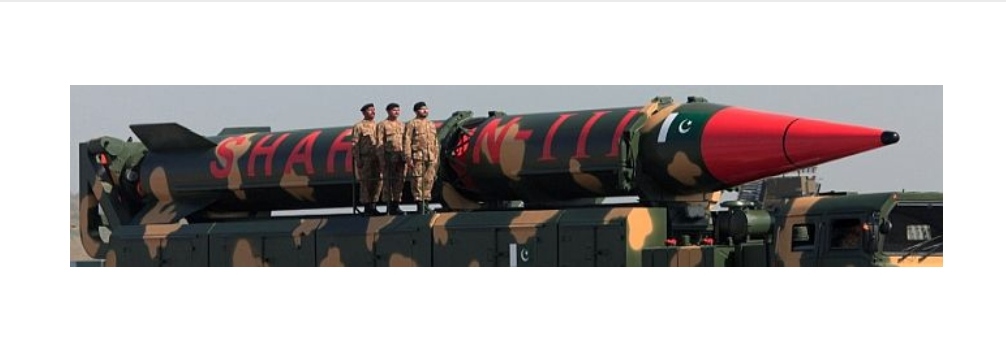Pak media talks of Global Nuclear disarmament

Of all things, Paki media is talking about Global disarmament!!!!! Pakistan developed nuclear weapons using a clandestine route for getting hold of key technology from China, North Korea and even the West.
Now finding themselves totally outpaced by India even in nuclear armament they are talking about the idealistic notion of global nuclear disarmament in the face of escalating global volatility.
Seeing the doublespeak of the Americans, in February 2023, Russian President Vladimir Putin announced the suspension of his nation’s participation in the New Strategic Arms Reduction Treaty (New START); the last remaining nuclear arms control agreement.
This has led the United States, to cease exchanging data on nuclear forces. Such developments highlight the increasing fragility of the future of nuclear disarmament and raise doubts about the effectiveness of arms limitation treaties such as the Nuclear Proliferation Treaty (NPT), the Outer Space Treaty (OST), the Comprehensive Test Ban Treaty (CTBT), and the New START doctrine.
Forget the failure of the treaty between the world’s two nuclear superpowers which highlights that the world is on the cusp of another nuclear arms race, there are other emerging nuclear superpowers like China and India and five minor ones.
As of early 2023, approximately 12,500 warheads were still in the possession of nine countries, leaving the possibility of nuclear disarmament in the future questionable.
In 2019 the United States walked away from the Intermediate-Range Nuclear Forces Treaty and later in 2020, it also withdrew from the Open Skies Treaty, which dealt a heavy blow to the progress made in eliminating an entire class of nuclear missiles.
Likewise, recent developments in Russia’s deployment of tactical nuclear weapons in Belarus have raised the spectre of nuclear conflict, leading the United Nations to issue a warning that the risk of nuclear weapons being used is higher now than it has ever been since the Cold War.
Failure of the treaty between the world’s two nuclear superpowers highlights that the world is on the cusp of another nuclear arms race and this time there are four major players.
The situation is further compounded by the growing nuclear arsenals of minor countries like UK, France, Israel, North Korea and Pakistan. Even Iran is trying to muscle in its way into the nuclear club.
Israel is expanding its nuclear facilities, coupled with intentions to equip its submarines with nuclear weapons. Similarly, North Korea’s progress in acquiring a nuclear weapon and willingness to use nuclear weapons pre-emptively is worrying. Such actions by both Israel and North Korea hinder disarmament efforts.
Furthermore, China’s complaint at the UN regarding the AUKUS deal highlights the loophole of NPT as under this treaty it is not allowed to transfer fissile material and nuclear technology from a nuclear-armed state to a non-nuclear state. This has brought to the forefront a host of concerns surrounding nuclear proliferation.
Similarly Pakistan now knows that it can no longer match India’s growing nuclear arsenal. India has been steadily enhancing and modernizing its nuclear capabilities to deter China and any other Power who tries to threaten it. It has conducted tests of the advanced Agni series land-based nuclear-capable Inter-Continental Ballistic Missile (ICBM).
India’s nuclear triad, which allows for launching nuclear weapons from land, air, and sea, is firmly in flow. Moreover, India has acquired advanced weapon systems such as the S400 defence system and has long-range submarine-launched ballistic missiles.
Pakistan says that it has been proactive in its efforts to contain nuclear proliferation in South Asia. Therefore Pakistan must propose to China to adopt the Strategic Restraint Regime (SRR), which includes three crucial elements: missile and nuclear restraint, maintaining conventional balance, and reinforcing elements of conflict resolution.
Pakistan’s offer for SRR will promote peace and stability in the region. SRR would effectively curb arms build-up by both China and Pakistan. Certainly, Pakistan should continue to project its commitment and constructive role towards nuclear non-proliferation in South Asia.



